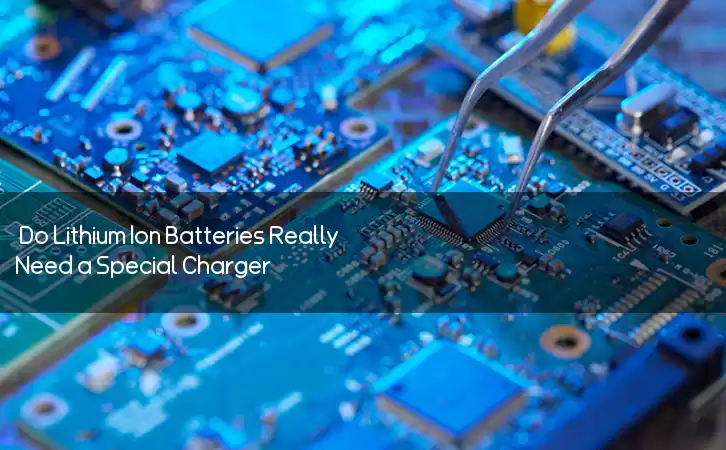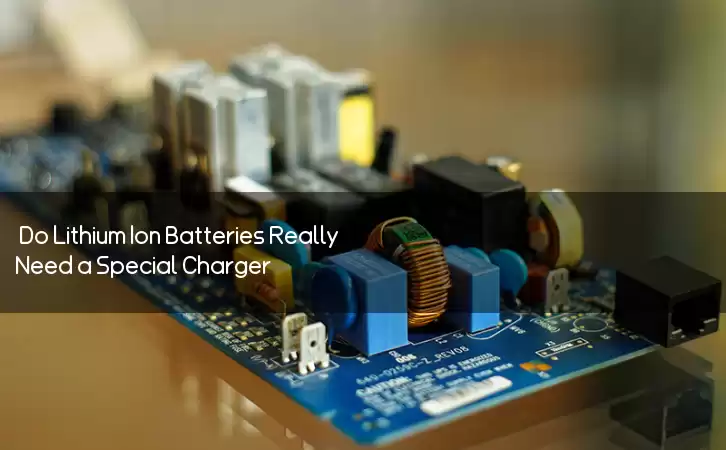Information Center
Do Lithium Ion Batteries Really Need a Special Charger?
Published:2023-09-03 00:33:59 Author:Green WCND Views:79Lithium ion batteries are increasingly popular in a wide range of electronic devices, from smartphones to electric vehicles. However, many people are unsure about how to properly charge these batteries, and whether they need special chargers. In this article, we will explore the issue of lithium ion battery charging, and whether or not a special charger is necessary.

Firstly, it’s important to understand how lithium ion batteries work. These batteries are made up of cells, which contain a positive electrode (cathode), a negative electrode (anode), and an electrolyte. When the battery is charged, lithium ions move from the cathode to the anode, storing energy. When the battery is discharged, the process is reversed, with lithium ions moving back to the cathode, and the stored energy being released.

Now, when it comes to charging lithium ion batteries, the most important factor is the voltage and current. Lithium ion batteries should be charged with a charger that matches the output voltage and current of the battery. If the voltage and current are too high, it can cause the battery to overheat, potentially damaging the battery and even causing a safety hazard.
This is where the issue of whether a special charger is needed comes in. Most lithium ion batteries can be charged using a standard USB charger or wall adapter that matches the voltage and current requirements of the battery. However, there are some situations where a special charger may be necessary.
For example, if you are using a high-capacity lithium ion battery, such as those found in electric vehicles, a special charger may be required to handle the higher voltage and current. Similarly, if you are using a lithium ion battery that has been modified (for example, to increase its voltage or capacity), a special charger may be necessary to handle the higher power requirements.
It’s also worth noting that some lithium ion batteries may come with their own charger, which is specifically designed for that battery. In these cases, it’s important to use the charger that came with the battery, as using a different charger could potentially damage the battery.
So, do lithium ion batteries need a special charger? In general, the answer is no – most lithium ion batteries can be charged using a standard USB charger or wall adapter that matches the voltage and current requirements of the battery. However, there are some situations where a special charger may be necessary, such as when using high-capacity or modified batteries.
In conclusion, when it comes to charging lithium ion batteries, it’s important to match the voltage and current requirements of the battery to the charger being used. While most batteries can be charged using a standard USB charger or wall adapter, there may be situations where a special charger is necessary. If you are unsure about how to properly charge your lithium ion battery, it’s always a good idea to consult the manufacturer’s instructions or seek advice from a qualified professional.
Power Adapter Design and Customization Guide for Portable Electric KettlesI. Common Design Types for Portable Electric Kettle Power AdaptersPortable electric ke···
I. Common Design Types of Power Adapters External Independent Type (Most Common) Design: A standalone adapter (e.g., "black brick") connected to the p···
Handheld Vacuum Cleaner Power Adapter Selection GuideIntroductionHandheld vacuum cleaners have become a mainstream tool for household cleaning due to their port···
Drill Power Adapter Selection Guide.drill-container { font-family: Arial, sans-serif; line-height: 1.6; max-width: 800px; margin: 0 auto; padding: 20px; } .dril···





